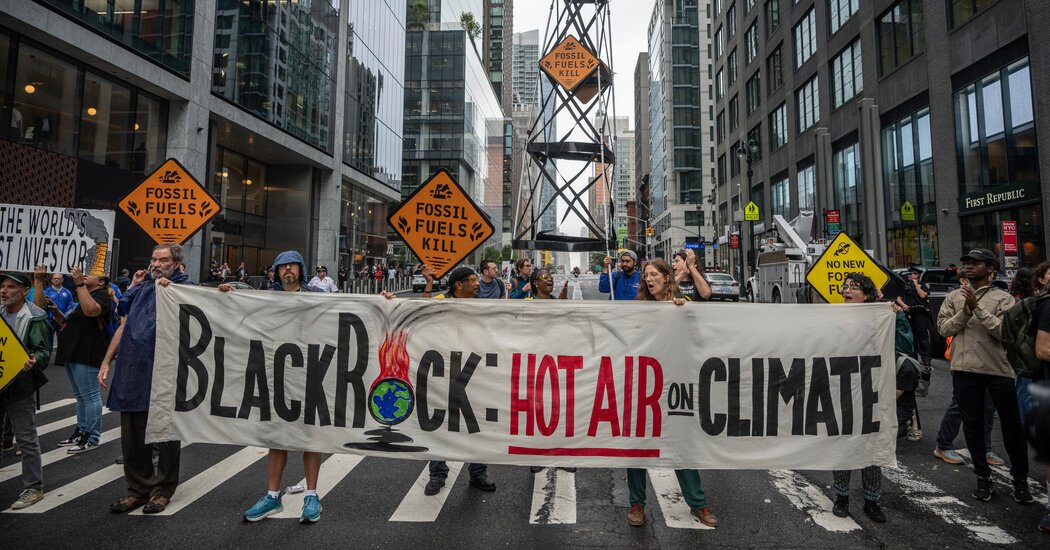A $14 trillion exit
Climate hawks have long questioned the financial industry’s commitment to sustainable investing. But few foresaw JPMorgan Chase and State Street quitting Climate Action 100+, a global investment coalition that has been pushing companies to decarbonize. Meanwhile, BlackRock, the world’s biggest asset manager, scaled back its ties to the group.
All told, the moves amount to a nearly $14 trillion exit from an organization meant to marshal Wall Street’s clout to expand the climate agenda.
The retreat jolted the political landscape. Representative Jim Jordan, the Ohio Republican who compared the coalition to a “cartel” forcing businesses to cut emissions, called for more financial companies to follow suit. And Brad Lander, New York City’s comptroller, accused the firms of “caving into the demands of right-wing politicians funded by the fossil-fuel industry.”
The companies say they’re committed to the climate cause. JPMorgan said it had built an in-house sustainable investment team to focus on green issues. And BlackRock will maintain some ties to the coalition: It has transferred its membership to an international entity.
A recent shift by Climate Action raised red flags. Last summer, the group shifted its focus from pressuring companies to disclose their net-zero progress to getting them to reduce emissions.
State Street said the new priorities compromised its “independent approach to proxy voting and portfolio company management.” And BlackRock, which has become a political lightning rod over its embrace of climate considerations in investing, said those tactics “would raise legal considerations, particularly in the U.S.” (Hence the transfer to an overseas division.)









